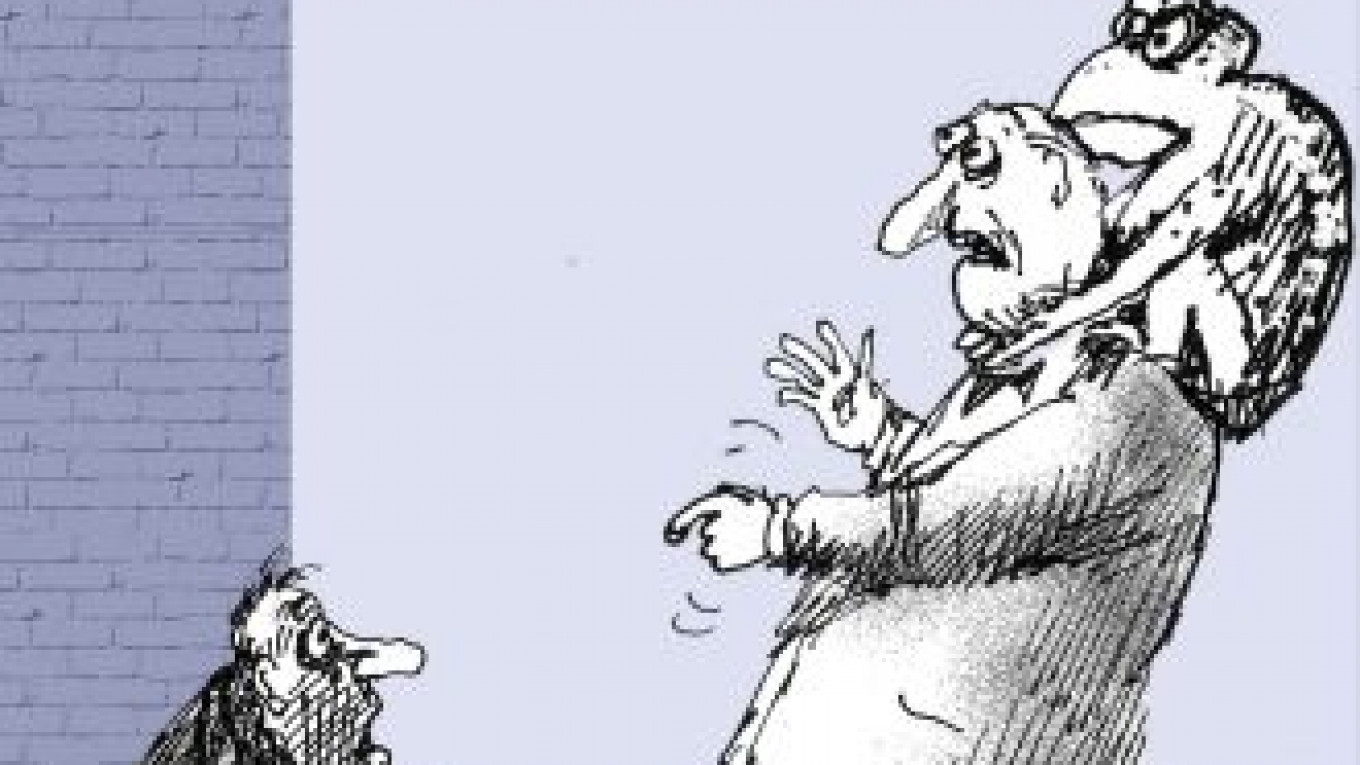Прижимистый: tight-fisted, stingy
In the Russian pantheon of virtues, щедрость (generosity) must be near the top of the highest column.
For Russians, the epitome of an admirable person is a generous friend, someone who is ready to spend time listening, helping and doling out advice as well as clothing, jewelry and loans.
Or someone who is a generous host, with an open door and a heavy hand for serving food and pouring drinks.
Or being generous in spirit, giving people the benefit of the doubt. This is even true in the Moscow-that-is-not-Russia, although you might need to ask for help before you see Russians at their generous best.
It follows, then, that скупость (stinginess) is at the bottom of the basement of Russian vices. Being cheap is a more than an unattractive character trait. It's a moral failing. And a lot of the words to describe a cheapskate evoke unpleasant images or are produced with grimaces and pursed lips. Ew.
Скупой (stingy) is probably the most neutral of the Russian cheap adjectives, and even that is defined as бережливый до жадности (thrifty to the point of avarice). Since it's hard to figure out where thrift crosses the line into greed, it's better to spend lavishly than save avariciously.
Скупой can also be used to describe anything that is scant, like скупой пейзаж (desolate landscape) or скупое сообщение (terse message). You can also use it with the preposition на to specify in what way someone is cheap. Профессор хороший, но крайне скупой на похвалу (The professor is very good, but he's short on praise).
Slightly worse in the cheapskate parade is прижимистый (tight-fisted), which comes from the verb прижимать (to clasp). You'll often find that in Russia, some rich people and many foreigners are often thought to be tightwads. Как всякий богач, он был прижимист (Like all rich folk, he was tight-fisted). Англичане достаточно прижимистые, или, если уж быть корректной, экономные (English people are quite tight with money, or, to be polite, they're thrifty).
You see how tricky it is to find that line where admirable thriftiness crosses over to become despicable penny-pinching?
The grimace-making word скряга (skinflint) is used to describe a very cheap person. У нас на человека, который живёт только на свои доходы, смотрят как на чудовищного скрягу (Here people regard someone who lives on his income alone as a monstrous miser).
Жмот, which is probably from the verb жать (to squeeze), pinches pennies. Крохобор is so cheap he gathers up (собирать) crumbs (крохи) after dinner. С соседями у нас хорошие отношения, хотя они жмоты и крохоборы (We're on good terms with our neighbors, even though they pinch pennies and sweep up the bread crumbs).
These stingy folks дрожат над каждой копейкой (literally, quake over every kopek). Если бы он не дрожал над каждой копейкой, он мог бы стать хорошим другом (If he didn't count every penny, he could have become a good friend).
Sometimes people are choked by toads — его жаба душит (literally, the toad chokes him). According to some, perhaps not fully authoritative sources, this phrase originated as грудная жаба (literally, a chest toad) to describe the feeling of clammy pressure on the chest that precedes a heart attack. In cheapskates, the same feeling of intense stress could be brought on by the need to lay out a good chunk of cash. Он не поедет домой на такси — жаба душит! (He won't take a cab home — he's too chintzy!)
I'm not quite sure of that derivation, but за что купила, за то и продаю (for what it's worth). Skinflint etymology.
Michele A. Berdy, a Moscow-based translator and interpreter, is author of "The Russian Word's Worth" (Glas), a collection of her columns.
A Message from The Moscow Times:
Dear readers,
We are facing unprecedented challenges. Russia's Prosecutor General's Office has designated The Moscow Times as an "undesirable" organization, criminalizing our work and putting our staff at risk of prosecution. This follows our earlier unjust labeling as a "foreign agent."
These actions are direct attempts to silence independent journalism in Russia. The authorities claim our work "discredits the decisions of the Russian leadership." We see things differently: we strive to provide accurate, unbiased reporting on Russia.
We, the journalists of The Moscow Times, refuse to be silenced. But to continue our work, we need your help.
Your support, no matter how small, makes a world of difference. If you can, please support us monthly starting from just $2. It's quick to set up, and every contribution makes a significant impact.
By supporting The Moscow Times, you're defending open, independent journalism in the face of repression. Thank you for standing with us.
Remind me later.








